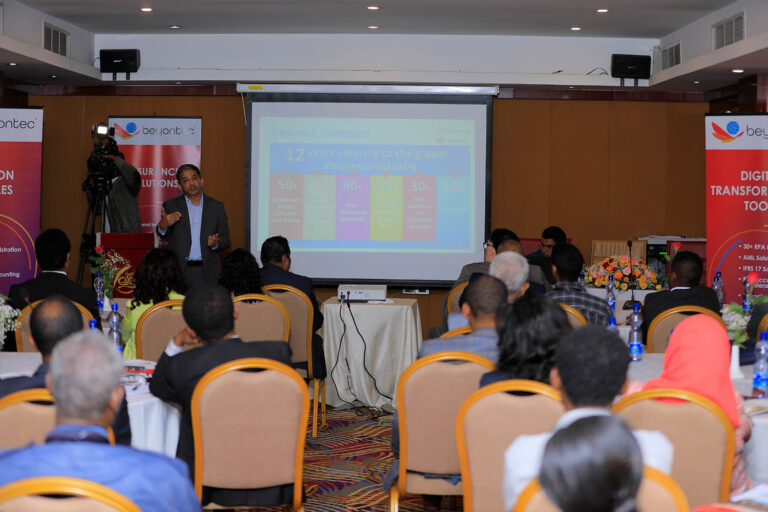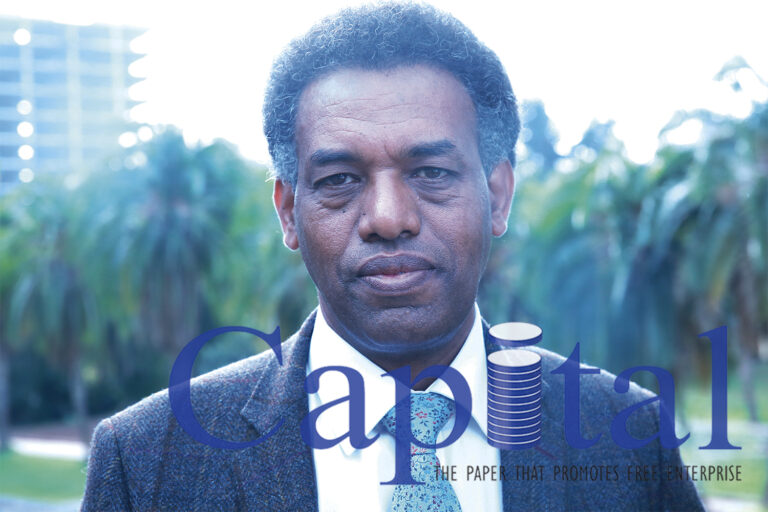Abebaw Fekadu (MD, MSc, PhD, MRCPsych) is Head of the Africa Centre of Excellence for Medical Discovery & Clinical Trials (CDT-Africa) and co-director of the WHO collaborating centre for mental health research and capacity building at the College of Health Sciences, Addis Ababa University. CDT-Africa is responsible for regional capacity building in medical product development with focus on neglected tropical diseases and health care delivery innovations. Abebaw is also an African Research Leader (supported by the Medical Research Council (MRC) and DfID, UK, Fellow of the Ethiopian Academy of Sciences and Member of the Royal College of Psychiatrists. He has published over 150 peer reviewed articles.
He serves or has served in various national and international panels including Lancet Commissions, WHO, the UK Medical Research Council and the US Institute of Medicine. Abebaw is Associate Professor of Psychiatry at the Addis Ababa University and has been a Visiting Professor at the University of Sussex (since March 2017) and King’s College London (since March 2019).
Abebaw graduated in Medicine from Addis Ababa University and trained in Clinical Psychiatry and Psychopharmacology in the United Kingdom. He talked to Capital about CDT Africa what it does. Excerpts;
Capital: What is CDT Africa, what does it do?
Ababaw Fekadu: CDT Africa is a center for the development of new drug innovation in the region established in 2015 with the possibility of accessing 24 eastern and southern African countries. CDT-Africa is a World Bank supported center for innovative drug development and therapeutic trials for Africa. The institution is working to develop endogenous sustainable capacity for therapeutic innovation through education and trainings of society in partnership with higher education and research institutions and discover new medicines under the Addis Ababa University.
The priority of CDT Africa is building endogenous sustainable capacity for therapeutic innovation, conducting researches for the discovery of new medical solutions for diseases, enhance capacity for synthesis CDT Africa works on three programs. which are; medical discovery and development plat forum with focus on drugs, vaccine and diagnostics; health care delivery innovation plat forum with focus on improving health care delivery and quality assurance. CDT also works with the ministry of health to develop solutions that address identified national needs.
Capital: What are some achievements of CDT-Africa through these years?
Ababaw Fekadu: First of all the establishment of the center is an achievement by itself. Creating a center to build sustainable capacity like medicine, drugs, vaccines and diagnostic can support local production of medicines and breaks the major barriers.
CDT is working to establish state of the art clinical trial unit with diverse capacity building initiatives. The institution is working on developing global solutions using the unique biodiversity of Ethiopia and the region. The product development work of CDT Africa is supported by its incubation hub, works on simple solutions on wider applications.
There are different products CDT is working on it. Recently the center starts to offer skilled based short courses as well as masters, PhD and post-doctoral trainings relevant to its objects.
CDT-Africa started giving PhD courses on translational medicine program which is to educate and train postgraduate students with different academic backgrounds and highly motivated to pursue a career in experimental biomedicine and clinical trials and researches. This makes the institution to be the first institution to give the program in the continent.
Capital: What is the relationship between clinical trials and drug innovation?
Ababaw Fekadu: Clinical trials are research investigations involve voluntary people to test new treatments. Clinical research is necessary to establish relatively safe and effective medical products and healthcare practices. It can be said the last stage of creating successful vaccine and medicine, after innovating each and every vaccines and medicine passes through different tests after to see how much is it successful, and if it has the expected result.
Majority of the world’s clinical trials are done in developed world, low-income countries like Ethiopia are underrepresented in clinical researches, however a number of clinical trials being done in Ethiopia keeps rising throughout the years. In the last three years the center by itself has registered four successful innovations and clinical trials.
Capital: How do you see drug development and new medicine innovation in our county? What are the challenges and the opportunities of the field in Ethiopia as well as in Africa?
Ababaw Fekadu: The development and the need for drugs in Africa are disharmonious. The sector is infant, even if there is substantial increase in demand, because of high population growth and the need to ensure universal coverage, we can point out several challenges which limit the development in Ethiopia namely macro and institutional, individuals and operational levels.
In Africa on average 79 percent of drugs and all kind of vaccines and diagnostics are imported and Ethiopia imports 85 present of the drug supplies of the nation. All active pharmaceutical ingredients are imported; substandard drugs are becoming epidemic in Africa. The current medical product development engagement neglect problems that are particular relevance, that lack of access to medicine poses a serious threat to the national and regional development. Poor access to essential medicine accounts for the premature death of at least 8 in 10 people in Africa. It is the major barrier to achieve a sustainable development goal. 80 percent of African countries lack therapeutic research and development capacity No country in the region is producing Active Pharmaceutical Ingredients
Drugs and medicines are huge and can have impact on the overall economic stand of the nation, for example drug importation is the top foreign currency drain after fuel in Ethiopia and likely the case across Africa. Improving access to medicinal institution can help achieve and increase the overall access to medicine with improved access and capacity for assurance, substandard medicines will be reduced , import of medicines will be reduced substantially.
Africa has the capacity to produce its needs also contribute to solve the health problems of the world by converting the unique biodiversity in to medicine products as part of the global health solutions for complex disease such as cancer.
Addressing the need and tacking advantages of the opportunity requires not only training scientists but also in transforming the whole innovation ecosystem starting from the low level.
Medical discovery and development is untapped opportunity to the prosperity, security and wellbeing of the continent, this is a huge opportunity and should be a national agenda and need the attention of the highest level. Having good medical industry sector can minimize the billion dollars countries pay to import medicine.
Capital: What should be done to increase the drug development and innovating new medicine? How long can it take Ethiopia to supplying all the required medicine to the local market?
Ababaw Fekadu:The field is very wide and huge, it needs the participation of all governance capacity, availability of human resource capacity to conduct scientific research’s, it needs the participation of all government and different stake holders in improving the sectors.
Building human capacity by itself is not sufficient, there is a need to create conducive discovery innovation ecosystem, change the academic environment and strengthen quality assurance and regulatory system.
Several things has to come up together and synergies, a unique system of government is required and innovation in this area is needed, the other main thing is to implement plans speedily and decrease the barriers on the procurement process.
In my opinion even if there are lots of things needed to be done, it is not much difficult as it is assumed, it does not take so much, it needs some kind of change, the first is mind change, we need to know that to be independent in medicine is crucial in one’s development. If the government is highly committed on the development of the state they have to work hardly on medicine sector, if it is so, it may take three or four years to minimize number of imported medicine in half which can cut billions of dollars used to import medicines.







